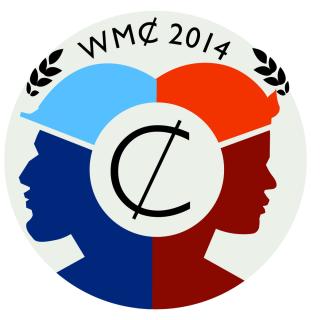
Mark Erlich on the Way We Build and Restoring Dignity to Construction Work
This month's episode gives a nod to one of the figures in our logo: the construction worker. Our guest, Mark Erlich has worked in the construction industry as a carpenter and union leader for a half century. In this episode, he shares his insights on the industry's past, present, and future, paying particular attention to the politics and material conditions surrounding construction work. In response to those who argue that today's labor shortages in the construction industry are the result of societal preferences, Erlich points to the decades-long degradation of construction work, including declining pay and protections. Fix those and you'll solve the labor problem.
2 Aug 202331min

Chelsea Schields on Oil, Intimacy, and the Offshore
In this month's episode, guest Chelsea Schields discusses oil refining and intimacy, illuminating the social ties and affective attachments engendered by oil in the Dutch islands of Aruba and Curaçao. Known today for their gorgeous beaches and sunny weather that attract tourists year-round, during the mid-twentieth century these islands were home to some of the largest oil refineries in the world. Along the way, we cover topics such as the role of race and gender in structuring labor relations; inter and intra imperial politics; migration; anti-colonial and anti-welfare movements; the 'offshore'; and much much more.
3 Juli 202349min

Joan Flores-Villalobos on How Black Women's Labor Made the Panama Canal
When it was completed in 1914, the Panama Canal nearly halved the travel time between the U.S. West Coast and Europe and revolutionized trade and travel between the Atlantic and Pacific Oceans. It’s construction, overseen by the U.S. government-Isthmian Canal Commission (ICC), has long been hailed as a marvel of American ingenuity. Less well-known was the project’s dependence on the labor of Black migrant women. In this episode, Joan Flores-Villalobos demonstrates how Black West Indian women’s intimate lives and labor were at the center of the Panama Canal’s construction, explaining how they built a provisioning economy that proved critical to the canal’s development and the maintenance of the West Indian diaspora.
4 Maj 202349min

Christy Thornton on Mexico, Development, and Governing the Global Economy
In this month's episode, Christy Thornton discusses the surprising influence of post-revolutionary Mexico on some of the twentieth century's most important international economic institutions, including the World Bank and the International Monetary Fund. Triangulating between archives in Mexico, the United States, and Great Britain, Thornton traces how Mexican officials repeatedly led the charge among Third World nations campaigning for greater representation within and redistribution through multilateral institutions created to promote international development and finance. In doing so, she recovers the crucial role played by Mexican economists, diplomats, and politicians in shaping global economic governance and U.S. hegemony during the mid-twentieth century.
5 Apr 202342min

Special Episode on the Military and the Market
This month, we welcomed Jennifer Mittelstadt back to the show, joined by Mark Wilson, to discuss their new edited volume, The Military and the Market. Moving beyond familiar topics like defense spending, the volume takes an expansive approach to examining military-market relations in a wide range of contexts--from family business in the Civil War to managing post-World War II housing construction for U.S. soldiers and their families, and much more. Alongside Jennifer and Mark, listeners will hear from Kara Dixon Vuic, whose chapter explores the U.S. military's managment of markets for sex. Taken together, The Military and the Market challenges scholars and military policymakers alike to really grapple with the breadth and complexity of U.S. military-market relations over the course of two centuries.
7 Mars 202346min

Allan Lumba on Monetary Authorities in the American Colonial Philippines
In this episode, historian Allan Lumba explores how the United States wielded monetary authority in the colonial Philippines, including the role of money as a tool for countering decolonization, entrenching racial and class hierarchies, and directing the profits of colonialism towards the U.S. and Wall Street, in particular, with long-lasting consequences for Filipinos and Americans still dealing with the aftermath of what Lumba calls conditional decolonization.
2 Feb 202338min

Chad Pearson on Klansmen, Employer Vigilantes, and Labor Suppression in the Long Nineteenth Century
This month’s episode takes listeners back in time to the late 19th and early 20th centuries, a time of significant labor unrest. At the time, employers, often with government support, went to great lengths to put down dissent, including employing violent tactics such as whippings, kidnappings, shootings, and imprisonment. Among those that helped to spear-head this violent suppression of workers and their allies were groups like the Ku Klux Klan, Law & Order Leagues, and Citizens Alliances. Though usually discussed separately, all of these groups used similar language to tar their lower-class challengers as menacing villains and deployed comparable tactics to suppress them. Calling into question a narrative of business management in this period centered on the adoption of scientific management principles and welfare capitalism, Pearson illuminates the repressive, and often terrifying, tactics undergirding industrial-labor relations at the turn of the 20th century.
5 Dec 202235min

Ghassan Moazzin on Foreign Banks and the Making of Modern China
This month’s episode picks up on a theme previously explored on the podcast: international finance. Drawing on a broad range of German, English, Japanese, and Chinese sources, Ghassan Moazzin traces the rise of foreign banking in China during the late 19th and early 20th centuries, a period that saw a dramatic increase in international trade and investment in the country. Particular attention is paid to the role of foreign banks in integrating China into global financial markets, including marketing China's sovereign debt, and their involvement in the 1911 Revolution and other events in modern Chinese history.
3 Okt 202233min





















